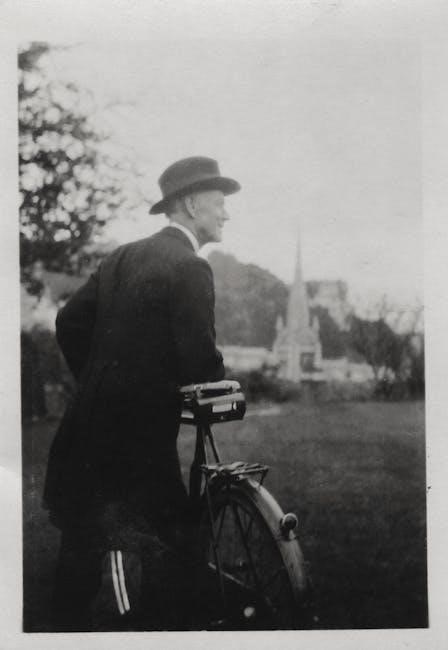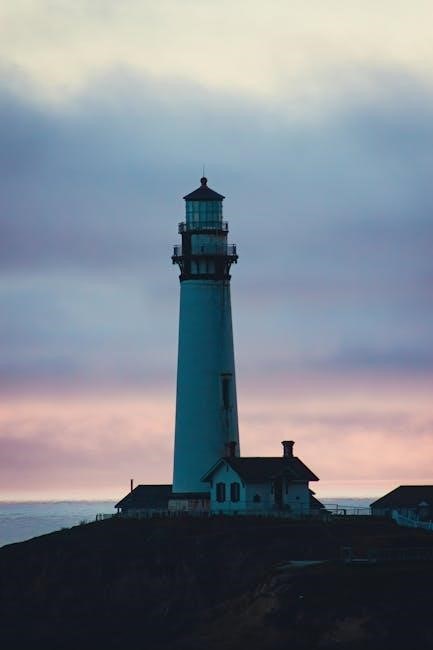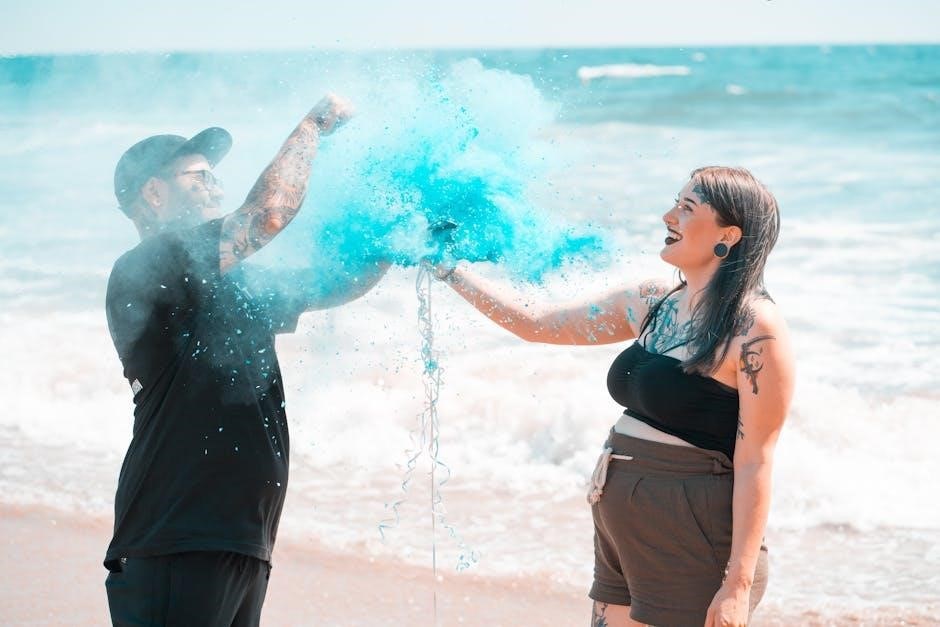Guided moose hunts in Canada offer unforgettable experiences in vast wilderness areas. With experienced guides and high success rates, hunters explore prime territories like Alberta, Manitoba, and Newfoundland.
These tours provide access to exclusive hunting grounds, ensuring thrilling encounters with trophy-sized moose. Whether during the rut or post-rut season, Canada remains a top destination for moose hunting enthusiasts worldwide.
Overview of Moose Hunting in Canada
Moose hunting in Canada is a premier big-game experience, offering vast wilderness territories and abundant wildlife. With experienced guides, high success rates, and trophy-sized animals, it attracts hunters globally.
From Alberta’s forests to Newfoundland’s coast, diverse habitats ensure thrilling adventures. Conservation efforts maintain healthy populations, making Canada a top destination for both resident and non-resident hunters seeking unforgettable moose hunting experiences.
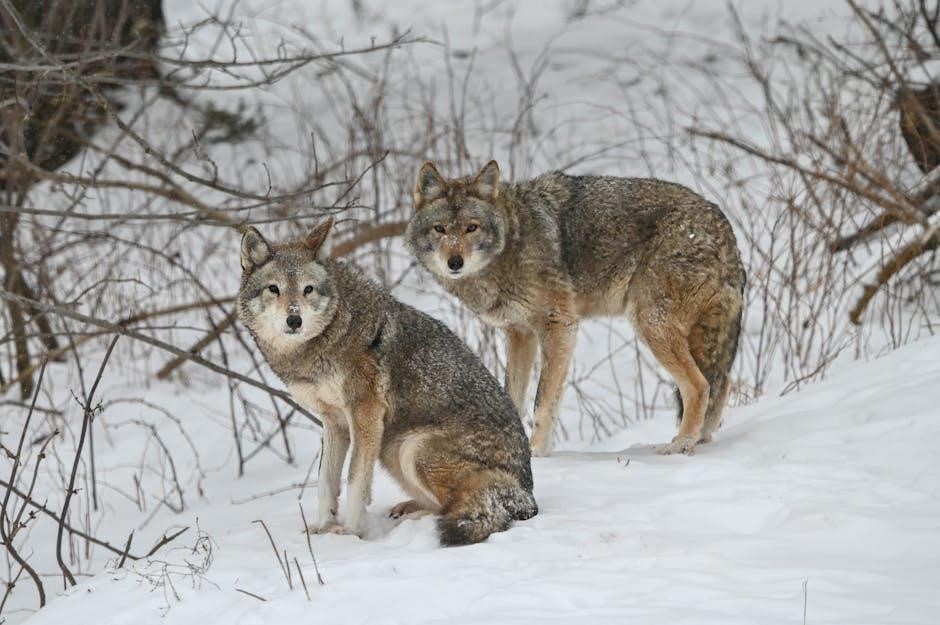
Popular Regions for Guided Moose Hunts
Alberta, Manitoba, Yukon Territory, and Newfoundland are top destinations for guided moose hunts in Canada, offering prime habitats and trophy opportunities for hunters.
Alberta: Prime Moose Hunting Territory
Alberta stands out as a premier destination for moose hunting, offering diverse habitats from forests to wetlands. Experienced guides ensure high success rates, while November post-rut hunts provide opportunities to target bachelor groups. With its vast wilderness and abundant wildlife, Alberta delivers unforgettable moose hunting experiences. Additional activities like fishing and bird hunting enhance the adventure, making it a must-visit for outdoor enthusiasts.
Manitoba: Abundant Wildlife and Scenic Landscapes
Manitoba is renowned for its rich wildlife and breathtaking landscapes, making it a top choice for moose hunting; The province’s diverse ecosystems, including vast forests, lakes, and wetlands, support an abundance of moose, deer, and bear. Big Sand Lake Lodge, located in the heart of Manitoba, offers exclusive hunting grounds with high success rates. Hunters can expect unforgettable experiences amidst the province’s pristine natural beauty and thriving wildlife populations.
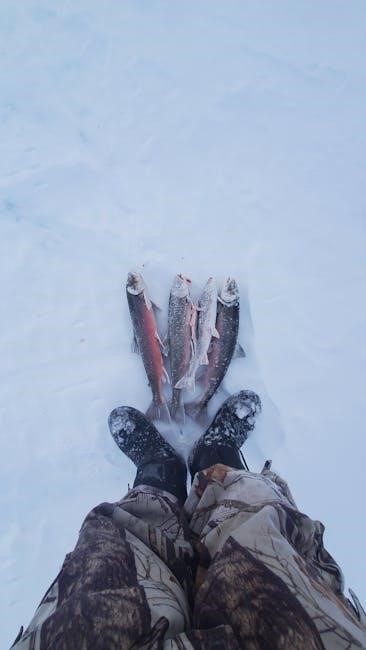
Yukon Territory: Trophy Moose Hunting
The Yukon Territory is a premier destination for trophy moose hunting, renowned for its abundant wildlife and pristine wilderness. With exclusive concessions and experienced guides, hunters can pursue trophy-sized moose in remote areas. Yukon Peak Outfitters offers guided hunts, accessing untouched regions by horseback. The territory’s reputation for producing exceptional trophy moose makes it a must-visit for serious hunters seeking memorable adventures and high success rates in Canada’s vast wilderness.
Newfoundland: Exclusive Hunting Grounds
Newfoundland offers unparalleled moose hunting experiences in its vast, untouched wilderness. Located in the North Atlantic, the island boasts exclusive hunting grounds spanning over 50,000 acres. Hunters can expect abundant moose populations and breathtaking landscapes. Guided tours ensure high success rates, making Newfoundland a top destination for those seeking a unique and rewarding moose hunting adventure in Canada.
Hunting Seasons and Durations
Moose hunting in Canada typically occurs in September during the rut and November post-rut. Hunts last 8-9 full days, offering ample opportunity to secure a trophy moose.
September Rut Hunts: Peak Season for Moose
September rut hunts in Canada are the peak season for moose hunting, offering high success rates. Bulls are vocal and active, making them easier to locate. Guides use proven calling techniques to attract trophy males. Hunts typically run from mid-September to early October, coinciding with the height of the rut. This period is ideal for harvesting large, mature bulls in prime locations like Alberta and Manitoba.
- Rut season begins mid-September.
- Experienced guides maximize hunting success.
- Prime locations include Alberta and Manitoba.
This is the ultimate time for a thrilling moose hunting experience in Canada.
November Post-Rut Hunts: Social Behavior and Bachelor Groups
November post-rut moose hunts in Canada focus on bachelor groups, where bulls are more social. Guides use spot-and-stalk tactics, as Calling is less effective. This period offers high success rates, with bulls often found in open areas. Hunts occur in prime regions like Alberta, with experienced guides leading the way. It’s a unique opportunity to harvest mature bulls during their social phase.
Hunt Duration: 8-9 Full Hunting Days
A typical guided moose hunt in Canada lasts 8-9 full hunting days, with clients arriving 2 days before and departing the day after. This allows time to acclimate and prepare.
The structured schedule ensures a focused and immersive experience, with guides expertly leading hunters through prime territories. Lodging, meals, and field preparation are often included, enhancing the overall adventure.
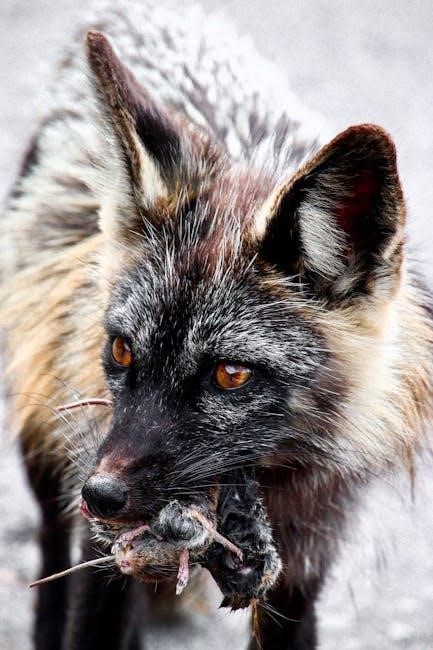
Guided Moose Hunting Tours
Guided moose hunting tours in Canada feature experienced guides, ensuring high success rates. These tours often include lodging, transportation, and field processing, making them a comprehensive hunting experience.
Experienced Guides and High Success Rates
Experienced guides play a crucial role in Canada’s guided moose hunts, ensuring hunters maximize their chances of success. Guides are knowledgeable about terrain, animal behavior, and hunting strategies, increasing the likelihood of a successful harvest.
With high success rates, these guided tours often result in trophy-sized moose. The guides’ expertise, combined with their intimate understanding of the land, makes them indispensable for both novice and experienced hunters alike.
Inclusions: Lodging, Transportation, and Processing
Guided moose hunts in Canada often include lodging, ensuring hunters have comfortable accommodations in remote wilderness areas. Transportation, such as float plane access, is typically provided to reach exclusive hunting grounds.
Post-harvest processing, including skinning and quartering, is also commonly included, streamlining the experience for hunters and ensuring they can focus on their pursuit of trophy moose.
Additional Activities: Fishing and Bird Hunting
Guided moose hunts in Canada often include additional activities like fishing and bird hunting, enhancing the outdoor experience. Many lodges offer access to pristine lakes and rivers, perfect for angling with a non-resident license.
Hunters can also pursue upland game birds such as grouse, requiring a separate license. These extras provide a well-rounded adventure, making the trip more than just a hunt.
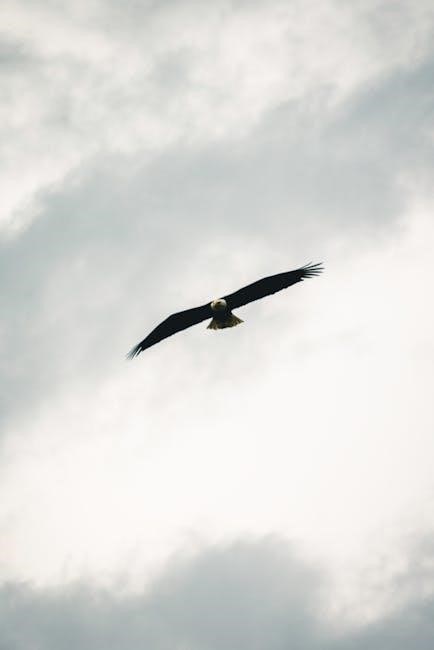
Legal and Ethical Considerations
Guided moose hunts in Canada require proper licensing for both residents and non-residents. Ethical practices ensure sustainable hunting, respecting wildlife and ecosystems to preserve moose populations for future generations.
Licensing Requirements for Residents and Non-Residents
Obtaining the proper licensing is essential for moose hunting in Canada. Residents and non-residents must purchase specific permits, with non-residents often requiring guided tours. Fees vary by province, and strict regulations ensure ethical practices. Licenses include tags for harvesting bulls or cows, depending on the season. Failure to comply can result in fines, emphasizing the importance of adhering to local wildlife laws and conservation efforts.
Sustainable Hunting Practices
Sustainable hunting practices are crucial for maintaining healthy moose populations in Canada. Ethical guidelines ensure fair chase and minimal environmental impact. Guides emphasize responsible harvesting, avoiding overhunting, and respecting wildlife habitats. Conservation efforts, such as regulated seasons and bag limits, help preserve the balance of ecosystems. Hunters are encouraged to utilize harvested animals fully, promoting a deep respect for nature and its resources while supporting long-term wildlife management goals.
Top Destinations and Outfitters
Canada’s premier moose hunting outfitters include Big Sand Lake Lodge, North Star Outfitting, and Smoky River Outfitting. These operators offer exclusive access to vast territories, high success rates, and trophy-sized moose, ensuring unforgettable hunting experiences.
Big Sand Lake Lodge: Largest Exclusive Territory
Located in Manitoba, Big Sand Lake Lodge boasts the largest exclusive moose hunting territory in Canada. With an impressive success rate, hunters enjoy access to vast, untouched wilderness. The lodge is renowned for its abundant wildlife, including trophy-sized moose. Surrounded by lakes, forests, and scenic landscapes, it offers an unparalleled hunting experience. Hunters can expect high-quality accommodations and expert guides, ensuring a memorable adventure in one of Canada’s most pristine regions.
North Star Outfitting: High-Quality Trophy Hunts
North Star Outfitting offers premium trophy moose hunts in Alberta, Canada, known for its abundant wildlife and scenic landscapes. With experienced guides and a high success rate, hunters can expect thrilling encounters with large bull moose. The outfitting service provides expert guidance, ensuring a memorable hunting experience. Located in prime moose habitat, North Star Outfitting is a top choice for hunters seeking high-quality trophy hunts in Canada’s vast wilderness.
Smoky River Outfitting: 95% Success Rate
Smoky River Outfitting, based in Northwestern Alberta, Canada, boasts an impressive 95% success rate for moose hunts. With over 200 bull moose harvested since 1997, their expertise and prime locations ensure memorable experiences. Experienced guides lead hunters through vast wilderness, maximizing chances of success. This outfitting service stands out for its commitment to excellence and high-quality trophy hunting opportunities.
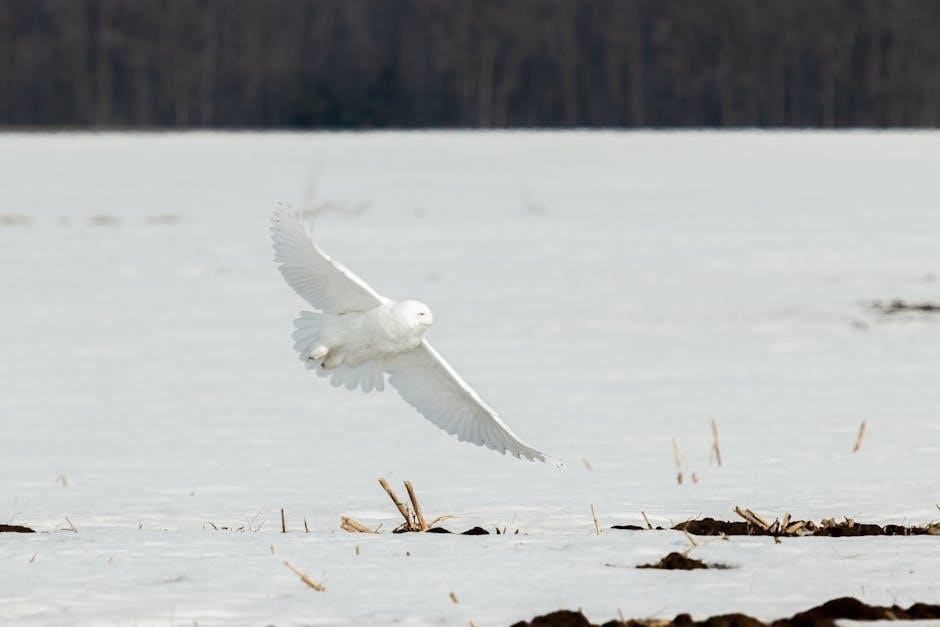
Planning Your Hunt
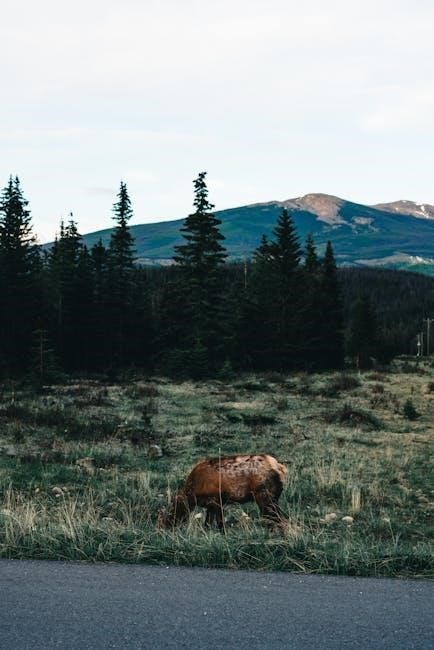
Prepare for 8-9 full hunting days, with fly-ins and gear essentials. Physical conditioning and proper licensing are crucial for a successful Canadian moose hunt experience.
What to Expect: Terrain, Weather, and Gear
Expect diverse terrain, including forests, wetlands, and mountainous regions. Weather varies from cool, rainy conditions in September to colder, snowy environments in November. Sturdy boots, waterproof clothing, and layered attire are essential. Bring reliable gear, including rifles, bows, and optics. Physical endurance is key for navigating challenging landscapes. Guides often provide equipment tips, ensuring hunters are well-prepared for the adventure.
Travel Arrangements: Flights and Accommodations
Travel arrangements typically involve flying into a remote base camp. Many hunters fly into locations like Fort McMurray or Ear Falls, where chartered flights are arranged by outfitters. This ensures seamless access to prime hunting areas.
Accommodations range from comfortable lodges to basic tent camps. Expect hearty meals and essential amenities. Lodges often include showers, laundry, and communal dining. Remote settings ensure an immersive experience, with outfitters handling logistics to maximize hunting time.
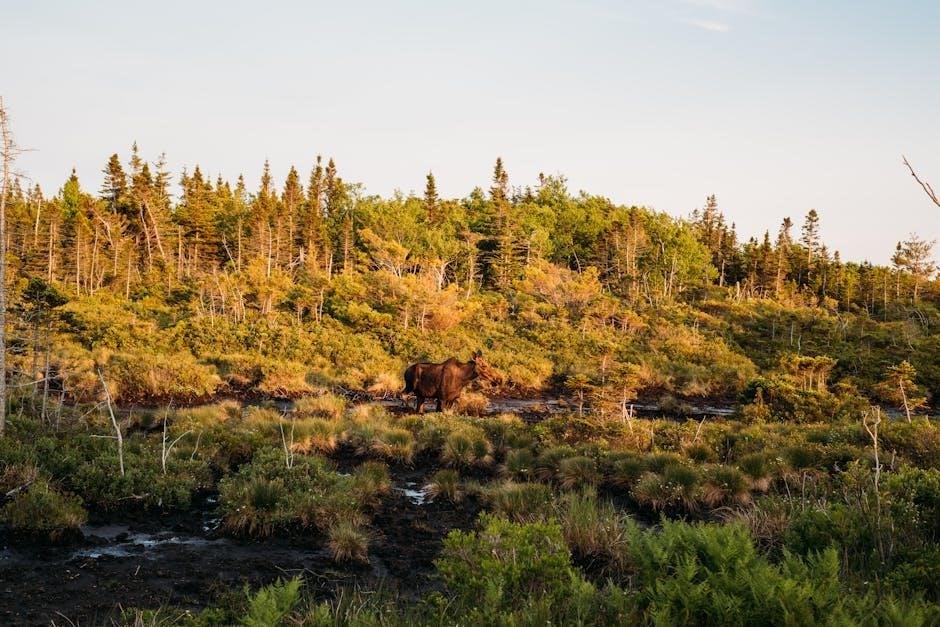
Pre-Hunt Preparation: Physical Conditioning and Licensing
Pre-hunt preparation is crucial for a successful moose hunt. Hunters must obtain the correct licensing, with non-residents requiring a special permit. Physical conditioning is essential due to the challenging terrain and long hikes. Start training early to build stamina and strength. Ensure all gear is in good condition, and familiarize yourself with local regulations. Proper preparation enhances both safety and the overall hunting experience in Canada’s wilderness.
